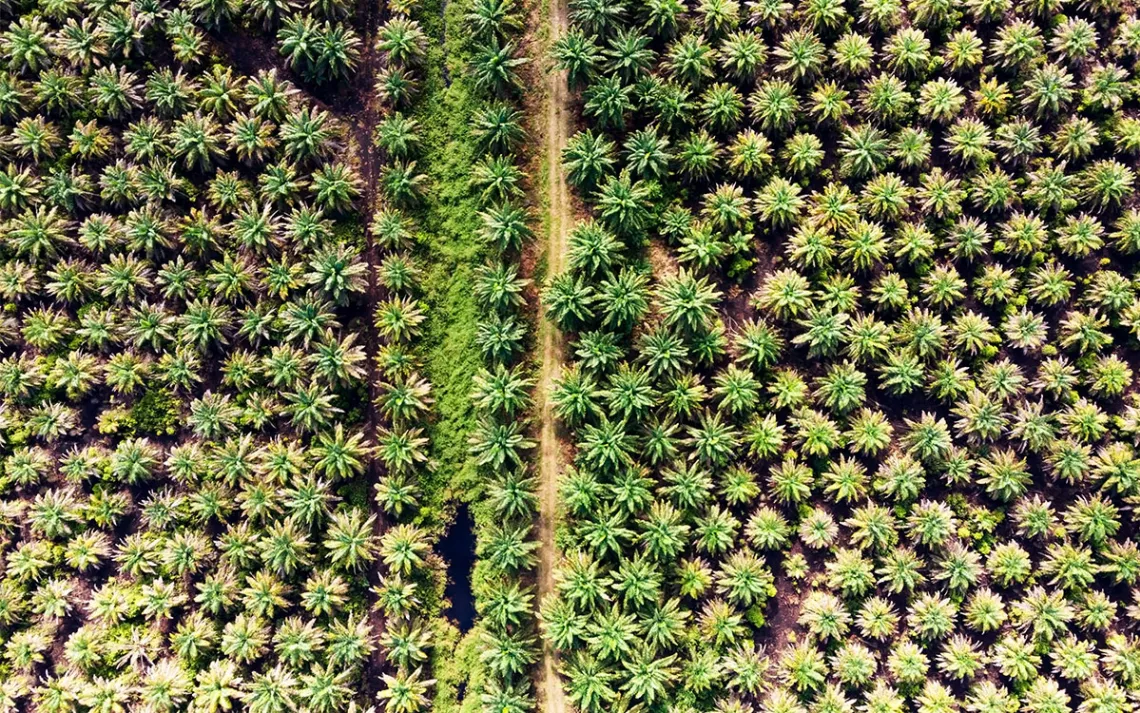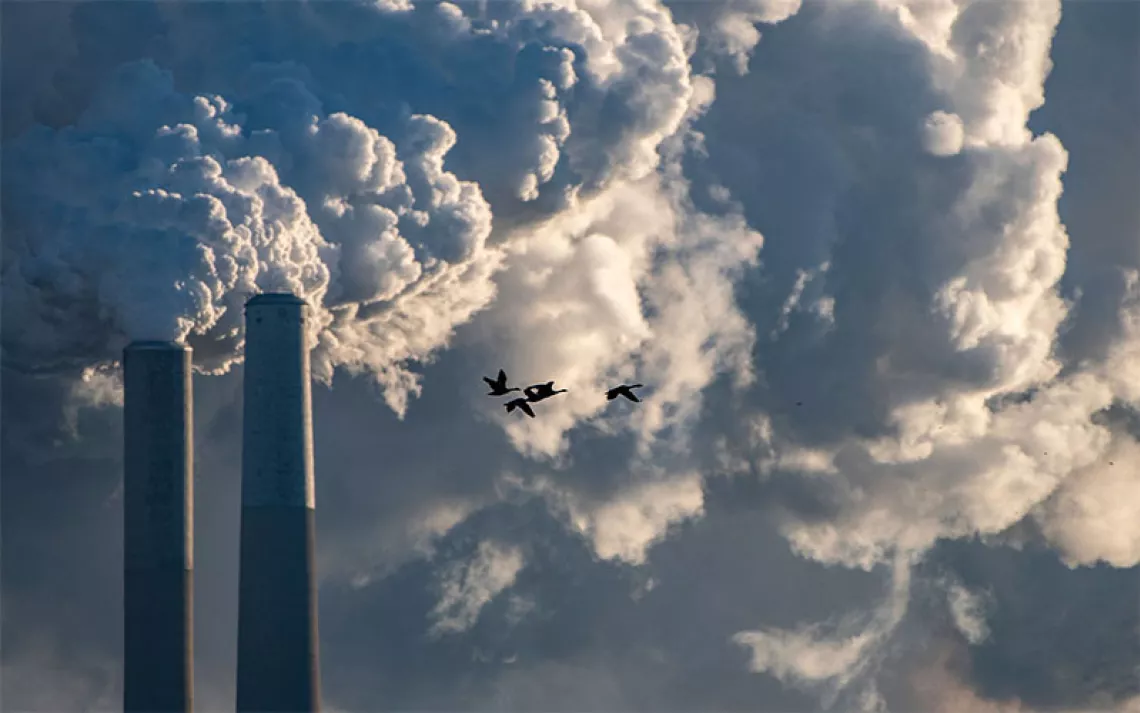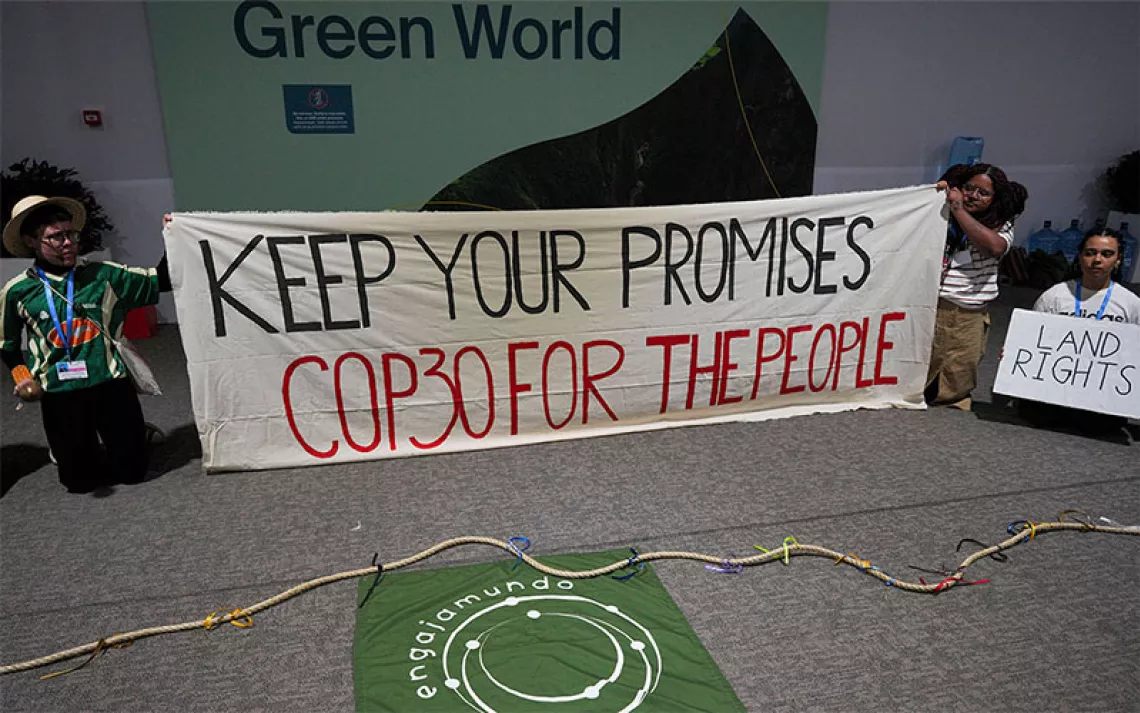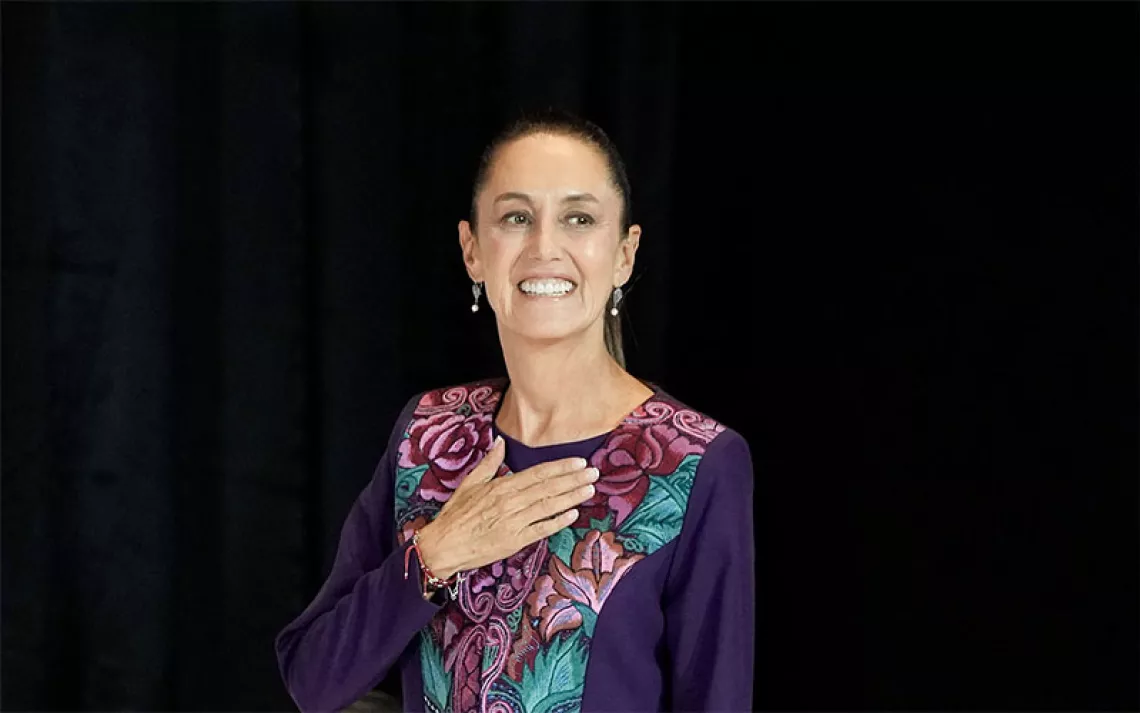The Demand for Conflict-Linked Palm Oil Now Comes From Fuel, Not Food
Palm oil is powering cars and could soon show up in airplanes

Photo by Kanok Sulaiman/Getty Images
In the past decade, calls to reduce deforestation linked to the use of palm oil in food, shampoo, and cosmetics have pushed some brands to adopt more sustainable practices in consumer-facing goods, but a stealthy market for conflict-linked palm oil is fast emerging in its place: car fuel, animal feed, and soon airplanes.
“Palm oil for biodiesel or fuel has never been sustainable,” said Chris Malins, who leads Cerulogy, an alternative and cleaner fuels consulting group based in the United Kingdom. “When you consider deforestation and other effects, the CO2 emissions are even worse than using fossil fuels.”
Among global palm oil exports, 85 percent come from Indonesia and Malaysia. There, millions of hectares of tropical forests have already been lost to make way for monoculture oil palm trees, and such plantations are still expanding into forest areas, peatlands are still being drained, and production continues to grow. In 2021 in Indonesia alone, 16 million hectares of palm oil plantations were producing 43 million metric tons of oil.
Efforts such as the Roundtable on Sustainable Palm Oil or corporate No Deforestation, No Peat, No Exploitation policies entirely focus on regulating the source of palm oil destined for consumer goods. The fear is that this narrow focus offers growers a loophole: Some who embrace sustainably grown palm oil sell theirs to buyers making "certified" products destined for export to Europe or North America, while a separate group of growers is pushing the Indonesian and Malaysian governments toward creating a market for unsustainable palm oil, leading to little net change for tropical landscapes in Southeast Asia.
“There’s a clear nexus between the palm oil industry and the government,” said Malins. “So clearly they’re pushing to grow this market.”
The initial plan set by both governments to protect palm oil producers is a mandate that a certain percentage of national ground transportation fuels include palm-oil-derived biodiesel. Malaysia launched its biofuel mandate with a 7 percent required mix in 2015, with Indonesia following with 15 percent that same year. Since then, the percentage of palm oil in Indonesia’s biodiesel has steadily risen, hitting 35 percent in 2023, with a goal of 40 percent by 2025, even while clear and conclusive science shows that food-based biofuels aren’t climate-friendly.
“A 40 percent mandate may lead to deforestation and peatland degradation, particularly in regions like eastern Indonesia where land clearing for oil palm plantations is prevalent,” said Refina Muthia Sundari, a research manager with the Indonesia-based nonprofit Traction Energy Asia.
This ever-expanding mandate in Indonesia led to the domestic consumption of palm oil for fuel overtaking its use in consumer goods in 2023.
“Initially, the biodiesel policy was based on economic motivations, aiming to stabilize the palm oil price because of palm oversupply,” said Refina. This oversupply was partly due to less ability to export to the US and Europe, due to brands like Nestlé, Unilever, PepsiCo, Mondelez, and others adopting no-deforestation policies, with third-party oversight. The same is true in neighboring Malaysia.
But exports are no longer so dependent on grocery store shelves. In addition to ground transportation fuel, a recent report from Rainforest Action Network found that millions of tons of palm oil are hiding in animal feed, and that this alone is now responsible for about one-third of all palm oil imports into the US, more than all the palm oil imported for use in food or cosmetics. And the industry is looking to the skies for the next market, pushing palm oil as a sustainable alternative to petroleum for aviation fuels.
“The aviation industry represents a concern and a renewed drive for expansion for food-based biofuels,” said Malins. “It’s the next window for aggressive growth.”

Make every day an Earth Day
Get articles like this one sent directly to your inbox.
With this action you affirm you want to receive Sierra Club communications and may vote on policy designated by the Sierra Club Board.
Aviation is responsible for at least 2 percent of global CO2 emissions, and the industry has been growing rapidly in recent years. Reducing those emissions is crucial to meeting global climate goals, but there aren't any simple solutions. Electric planes that can transport as many passengers as today’s commercial jets are decades away, and limiting flying would require government intervention, something unlikely in countries such as the US, where aviation is highly unregulated and very profitable. Hence, Sustainable Aviation Fuels (SAF), a term for biofuels with lower CO2 emissions than fossil fuels that can be used in modified versions of existing planes.
“There is significant political interest in not constraining aviation, and there’s a lot of appetite to believe that aviation activity can be made climate friendly, and that makes people want to believe that biofuels are the solution,” said Malins. ”When people want to believe something, it might be undermining proper oversight and policy analysis.”
In some ways, dealing with palm oil feels like a game of whac-a-Mole, as producers constantly seek new markets for palm oil and avoid sustainability requirements. This highlights the importance of watchdog environmental organizations, said Daniel Carrilo, a researcher at the nonprofit Rainforest Action Network, and the need to monitor high deforestation risk supply chains. It also shows the need for stronger action from governments, he said—brands need to face real repercussions, beyond public shaming, for failing to source ethical palm oil.
“We've got certification schemes and voluntary policies, but without those regulations that carry financial consequences, unfortunately, many companies won’t move,” he said.
Malins hopes that rapid adoption of electric vehicles can play a role in reducing the demand for both biofuels and fossil fuels. More electric cars and, especially in Southeast Asia, electric motorbikes would take a huge bite out of expected future growth for palm oil-based biofuels.
“A shift to electric vehicles would also be beneficial to reducing the overall cost of transportation for Indonesia and Malaysia,” said Malins.
 The Magazine of The Sierra Club
The Magazine of The Sierra Club



